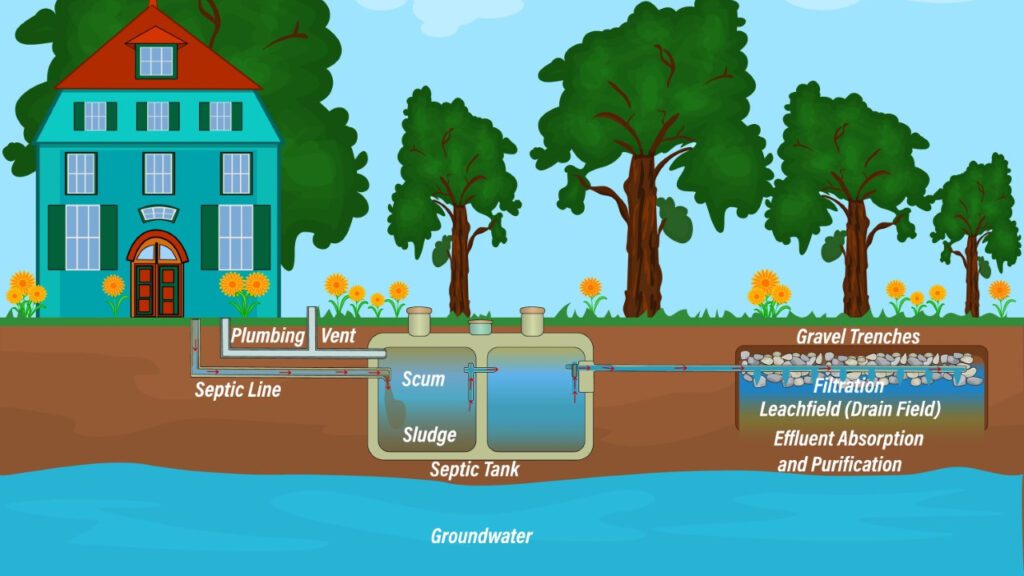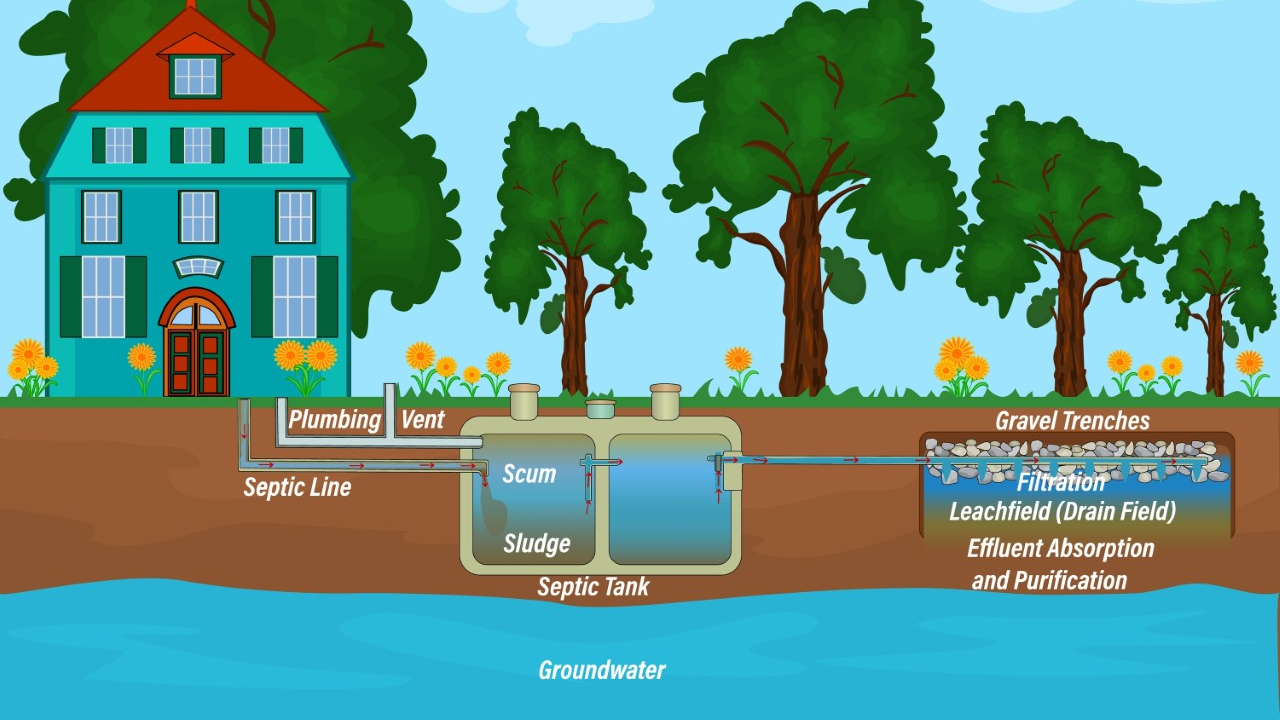In this article, we will discuss an important topic that homeowners should be aware of: how often to have your septic tank cleaned. Regular maintenance of your septic tank is crucial to avoid costly and unpleasant issues down the line. We will delve into the key factors that determine the frequency of septic tank cleaning, such as the size of your tank, the number of people in your household, and the usage of water. By understanding these factors, you’ll be equipped with the knowledge to ensure the proper care and longevity of your septic system.
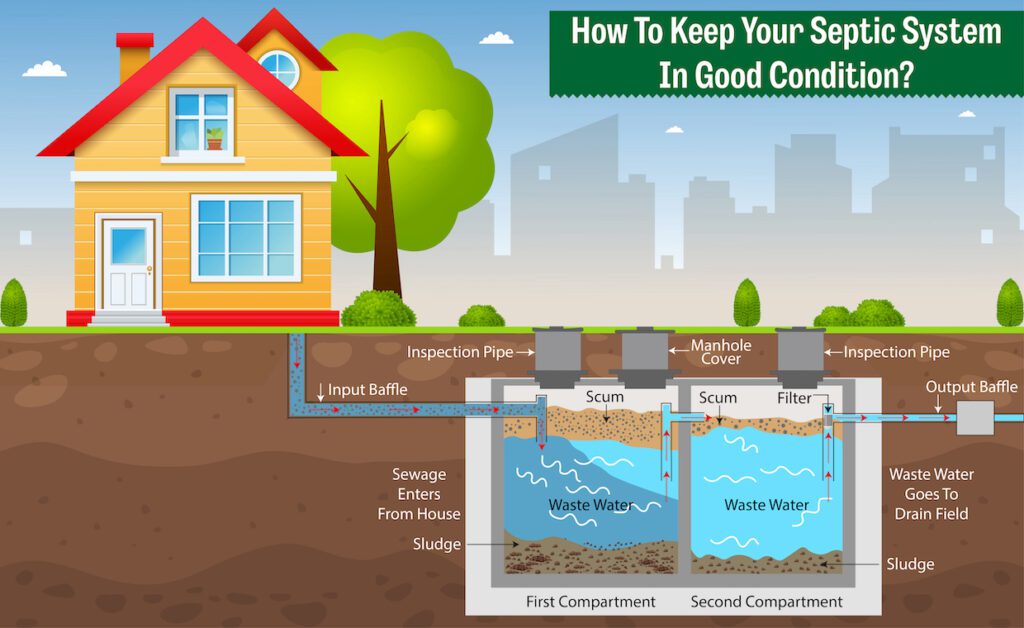
What is a septic tank?
A septic tank is an underground wastewater treatment system commonly used in rural areas or locations where access to a municipal sewage system is not available. It is an essential part of a household’s plumbing system, as it processes and treats the household’s wastewater.
How does it work?
A septic tank functions by separating solid waste from the liquid waste. The wastewater from a household flows into the septic tank through the inlet pipe. Inside the tank, the solid waste settles to the bottom, forming a layer known as “sludge.” The lighter material, such as grease and oils, floats to the top, creating a layer called “scum.” The liquid, also known as “effluent,” flows out of the tank through the outlet pipe and into the drain field, where it gets further treated and absorbed into the soil.
Components of a septic tank system
A typical septic tank system consists of three main components:
-
The septic tank: This is the main storage unit where the wastewater is held. It is usually made of concrete, fiberglass, or plastic, and it comes in different sizes depending on the needs of the household.
-
The drain field: Also known as a leach field, this area is where the effluent from the septic tank is further treated and dispersed into the soil. It consists of a network of perforated pipes or trenches, which allow the effluent to be absorbed and filtered naturally.
-
The distribution box: In some septic tank systems, a distribution box is used to evenly distribute the effluent to different parts of the drain field. It helps to prevent overloading of any specific area and promotes proper absorption and filtration of the wastewater.
Why is regular maintenance important?
Regular maintenance of a septic tank system is crucial for several reasons:
Prevents system failure
A neglected septic tank system can lead to system failure, causing backups, slow drainage, and costly repairs. Regular maintenance, including pumping and cleaning, helps prevent the accumulation of sludge and scum, ensuring that the system functions properly.
Avoids costly repairs
Repairing a septic tank system can be expensive, especially if the damage has progressed to more severe issues, such as a damaged drain field or collapsed pipes. Regular maintenance helps identify and address minor problems early on, before they worsen and result in costly repairs.
Ensures proper functioning
Regular maintenance ensures that the septic tank system operates efficiently and effectively. By removing excess sludge and scum, the tank can function optimally, allowing for proper treatment and disposal of wastewater. This not only protects the environment but also helps maintain the health and safety of your household.
Factors that determine the frequency of cleaning
Several factors can influence how often you should have your septic tank cleaned. These factors include:
Tank size
The size of your septic tank is one of the key factors in determining the frequency of cleaning. Smaller tanks may require more frequent pumping and cleaning, as they have less storage capacity for solid waste.
Number of occupants
The number of people living in your household plays a significant role in how quickly your septic tank fills up. More occupants mean more water usage and more wastewater entering the tank. As a general rule, the more people in your household, the more frequently you will need to clean your septic tank.
Household habits
The habits and activities of the occupants in your household can affect the frequency of septic tank cleaning. For example, if your household frequently uses a garbage disposal or disposes of non-biodegradable items down the drain, it can lead to faster accumulation of solid waste in the tank, requiring more frequent cleaning.
Septic tank condition
The condition of your septic tank is another factor to consider. If your tank is older or has not been properly maintained in the past, it may require more frequent cleaning to remove built-up sludge and scum.
Signs that indicate the need for cleaning
While the frequency of septic tank cleaning may vary depending on the factors mentioned above, there are some common signs that indicate the need for cleaning:
Slow draining toilets and sinks
If you notice that your toilets or sinks are draining slowly, it could be a sign that your septic tank is full and needs to be cleaned. A full tank can hinder the flow of wastewater, causing backups and slow drainage.
Bad odor
A foul smell coming from your drains or yard is a clear indication of a septic tank issue. When the tank becomes overloaded with solid waste, it can produce unpleasant odors that linger in your home or around your property.
Puddles or wet spots in the yard
If you notice puddles or wet spots in your yard, especially around the area where the septic tank and drain field are located, it may indicate a problem with your septic system. Excess effluent may be seeping into the soil instead of being properly absorbed, requiring immediate attention.
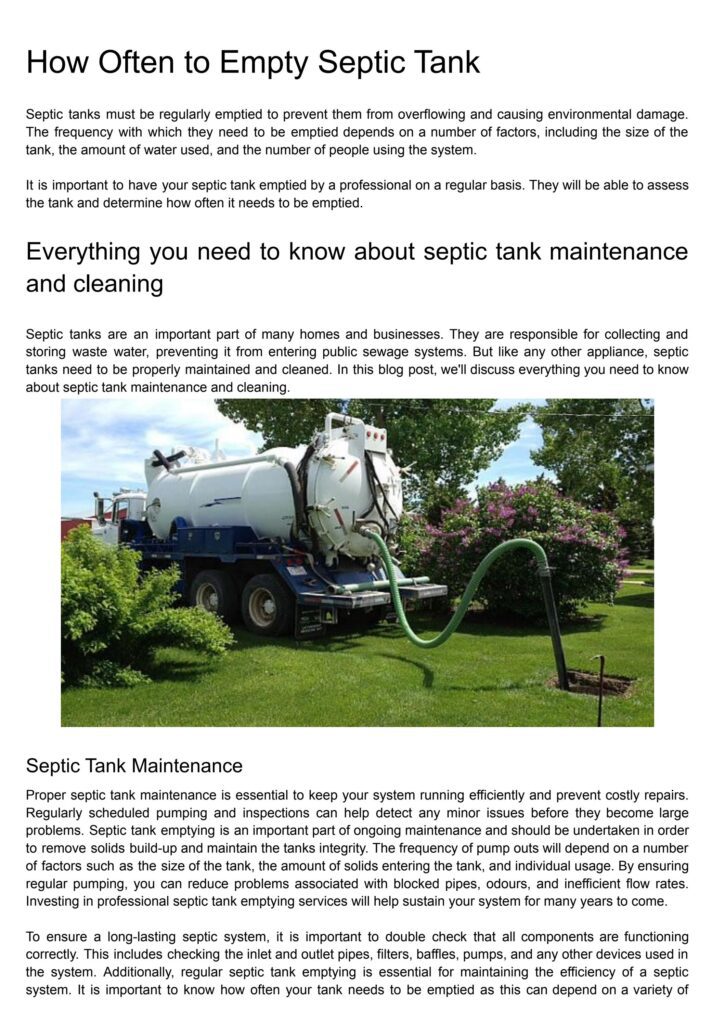
Recommended frequency for cleaning
The frequency of septic tank cleaning depends on various factors, but as a general guideline:
Based on tank size and number of occupants
For an average-sized septic tank with a capacity of 1,000 gallons and a household of 3-4 occupants, it is recommended to have the tank cleaned every 3-5 years. However, smaller tanks or larger households may require more frequent cleaning.
General guidelines
It is always best to consult with a septic tank professional to determine the specific cleaning frequency based on your unique circumstances. They can assess the condition of your tank, consider your household’s habits, and provide recommendations tailored to your needs.
Importance of professional septic tank cleaning
While there are certain steps you can take to maintain your septic tank system on your own, professional septic tank cleaning is essential for several reasons:
Certified technicians
Professional septic tank cleaning companies employ certified technicians who have the knowledge and expertise to properly inspect and clean your septic tank. They can identify any potential issues and provide appropriate solutions, ensuring the longevity and efficient operation of your septic system.
Proper disposal of waste
Septic tank cleaning involves removing the accumulated sludge and scum from the tank. Professional cleaners have the necessary equipment and resources to dispose of this waste properly and in accordance with environmental regulations. Improper disposal of septic waste can have adverse effects on the environment and public health.
Thorough inspection of the tank
During the cleaning process, professional technicians can also conduct a thorough inspection of your septic tank. They can identify any signs of damage, leaks, or other issues that may require attention. Timely detection of such problems can prevent more extensive damage and costly repairs down the line.
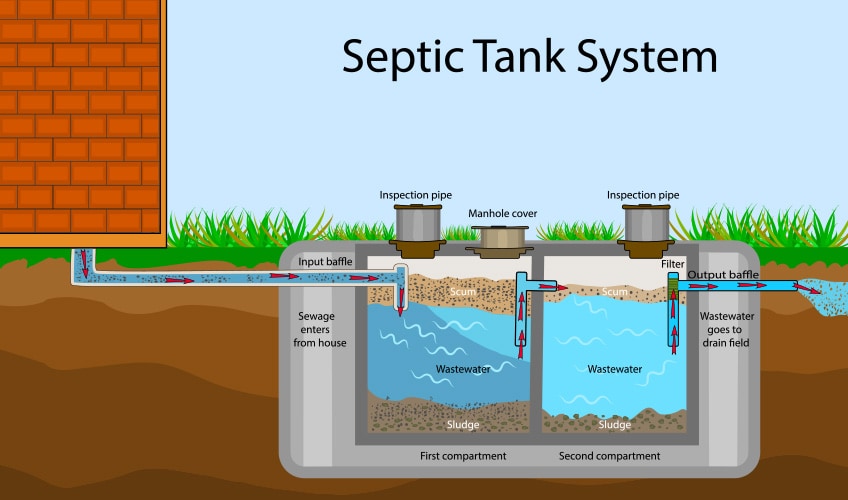
DIY methods for septic tank maintenance
While professional septic tank cleaning is recommended, there are also some simple steps you can take to maintain the health of your septic system:
Avoid flushing harmful substances
To protect the integrity of your septic tank system, avoid flushing any non-biodegradable items, grease, or chemicals down the drains. These substances can disrupt the natural breakdown process of the tank, leading to blockages and system malfunctions.
Regular pumping of the tank
Regular pumping of the septic tank is necessary to remove the accumulated sludge and scum. Consult with a septic tank professional to determine the appropriate pumping schedule based on your tank size and household needs.
Proper landscaping around the tank
Ensure that the area around your septic tank and drain field is free from heavy machinery or structures to prevent damage to the system. Additionally, avoid planting trees or shrubs with deep roots near the tank, as they can infiltrate the pipes and cause blockages.
Additional tips for maintaining a healthy septic system
In addition to regular cleaning and DIY maintenance, here are some additional tips to keep your septic tank system in optimal condition:
Regular inspection
Schedule regular inspections of your septic tank system to identify any potential issues early on. Professional technicians can provide a comprehensive assessment and make recommendations for maintenance or repairs as needed.
Water conservation
Conserving water in your household can help reduce the strain on your septic tank system. Repair any leaking faucets or toilets promptly, and be mindful of excessive water usage, such as running the dishwasher or laundry machine with full loads.
Proper waste disposal
Dispose of household waste properly by using biodegradable and septic-safe products. Avoid pouring cooking oils, medications, or harsh chemicals down the drain, as they can disrupt the balance of the septic tank system.

Potential consequences of neglecting septic tank maintenance
Neglecting septic tank maintenance can have serious consequences for both your home and the environment:
System failure
When a septic tank becomes overloaded with solid waste, it can lead to system failure. This can result in backups, slow drainage, and even sewage overflow into your home or yard, posing health and safety risks.
Health hazards
A neglected septic tank can release harmful bacteria and pathogens into the environment, contaminating groundwater and nearby water sources. This can lead to the spread of waterborne diseases and pose a risk to human and animal health.
Environmental implications
When a septic tank system fails or leaks, it can release excess nutrients and pollutants into the soil and waterways, causing environmental damage. Inadequately treated wastewater can impact aquatic ecosystems and contribute to the degradation of water quality.
Conclusion
Regular maintenance of your septic tank system is essential to ensure its proper functioning and prevent costly repairs. Factors such as tank size, number of occupants, household habits, and septic tank condition determine the frequency of cleaning. Signs that indicate the need for cleaning include slow draining toilets and sinks, bad odor, and wet spots in the yard. Professional septic tank cleaning is important for certified technicians, proper waste disposal, and thorough tank inspection. DIY methods like avoiding harmful substances, regular pumping, and proper landscaping can help maintain a healthy septic system. Neglecting septic tank maintenance can result in system failure, health hazards, and environmental implications. By following recommended maintenance guidelines and seeking professional assistance when needed, you can ensure the longevity and efficiency of your septic tank system.
